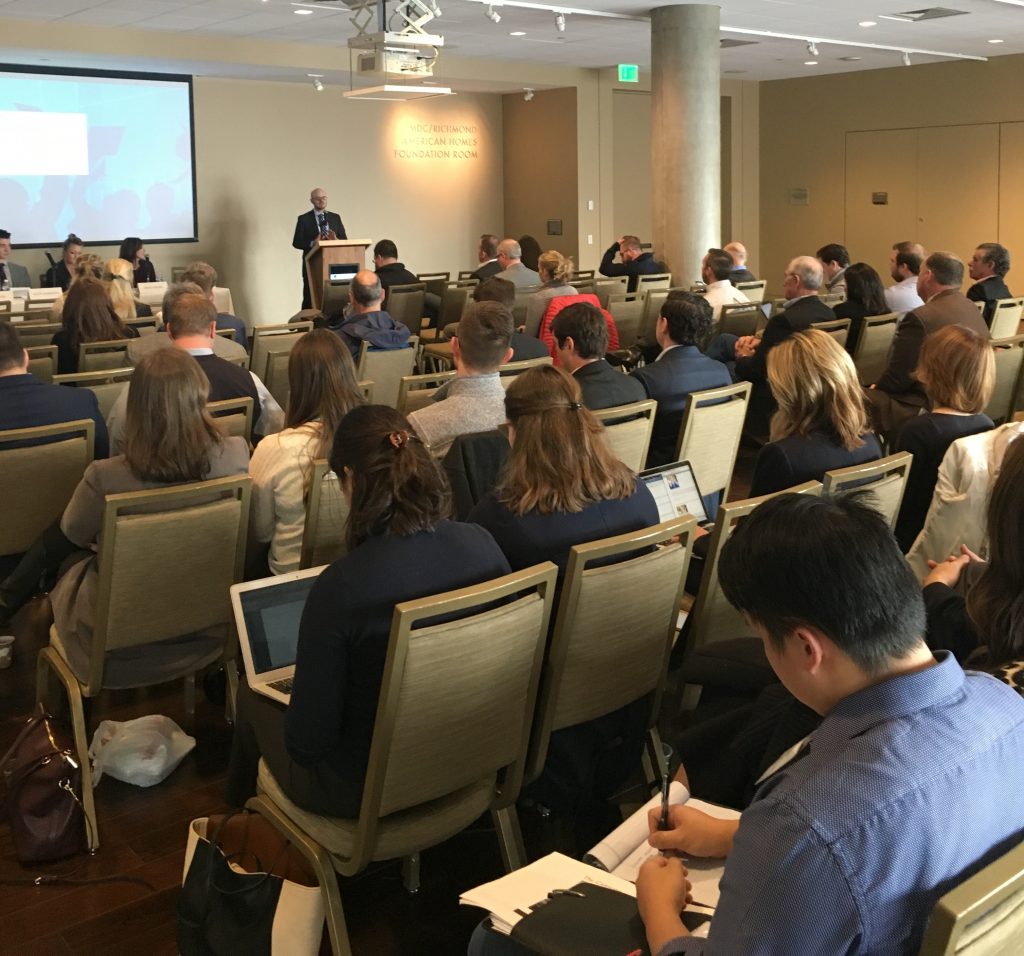Divestment Will Cost up to $250 Million Over 20 Years, Expert Warns
Watch the full Divestment Forum HERE
 Officials from Colorado’s higher education and energy sectors are urging the University of Denver (DU) to reject a proposal to divest the university’s endowment from investments tied to oil, natural gas or coal. At an energy forum held yesterday in Denver, an expert in fossil-fuel divestment also warned that the cost of divestment at DU could reach $250 million over 20 years.
Officials from Colorado’s higher education and energy sectors are urging the University of Denver (DU) to reject a proposal to divest the university’s endowment from investments tied to oil, natural gas or coal. At an energy forum held yesterday in Denver, an expert in fossil-fuel divestment also warned that the cost of divestment at DU could reach $250 million over 20 years.
The forum was hosted by Divestment Facts, a project of the Independent Petroleum Association of America (IPAA). Speaking at the event were Heidi Ganahl, University of Colorado Regent-elect, Tracee Bentley, Executive Director of the Colorado Petroleum Council (CPC), DU student Scott Albertoni and Dr. Chris Fiore, Senior Economist, Compass Lexecon. They spoke to an audience of energy sector workers and industry supporters at the Colorado History Center.
Heidi Ganahl, recently elected to a statewide seat on the University of Colorado Board of Regents, a school that has rejected divestment, discussed the costs of removing energy holdings from an investment portfolio.
“Universities across the country, including the University of Colorado, have determined that it is in the best interests of their missions, their students and other constituents to have a diversified investment portfolio, which includes the energy sector,” Ganahl said. “They have rejected calls for divestment not only because it is a questionable investment strategy, but also because the direct beneficiaries of investments are students who receive scholarship funds and faculty whose research is supported in part by investment income.”
Tracee Bentley with the CPC highlighted how the DU divestment campaign has been organized by the same national activist group – 350.org – that was behind a series of anti-oil and gas ballot initiatives in Colorado.
“Energy development is a pillar of Colorado’s economy,” said Tracee Bentley. “And unfortunately, the divestment campaign is little more than an effort to demonize thousands of Coloradans who work in the energy industry and the significant investments they have made in Colorado. That is why it is no surprise to see that this campaign is driven by the same fringe activist group that for years has been trying to shut down Colorado’s energy industry, and the jobs and economic benefits that come along with it.”
Scott Albertoni, a current DU student expressed his hope that the task force will consider the voices of the greater student body, as opposed to just those represented by Divest DU.
“The fact is that most students I know on campus have never heard of Divest DU, or 350.org’s national campaign to lobby colleges and universities across the nation to divest their endowments of fossil fuel investments,” Albertoni said. “Yet these efforts could have a significant financial impact on the entire student body. That is why I hope the task force will consider the larger student population when crafting their recommendation.”
Chris Fiore, Ph.D. – who has worked on a series of divestment research papers commissioned by the IPAA – cautioned that divestment could impose serious costs on DU.
“My research has shown that divestment could come at an astounding cost for DU, somewhere between $68 and $250 million over the next 20 years,” Fiore said. “Simply put, divesting from oil, natural gas, or coal stocks results in lower investment returns and an increase in fees. Given that divestment is unlikely to impact climate change, institutional investors such as endowments must carefully consider whether a purely symbolic move is worth the steep cost.”
The forum came a day after Divestment Facts announced the launch of a new social media campaign aimed at raising awareness among college students of the risks and costs associated with fossil fuel divestment on college campuses.
In response to lobbying from 350.org, DU established a special task force to study the fossil fuel divestment issue earlier this year. The task force is expected to make its recommendation to full university board early next year.